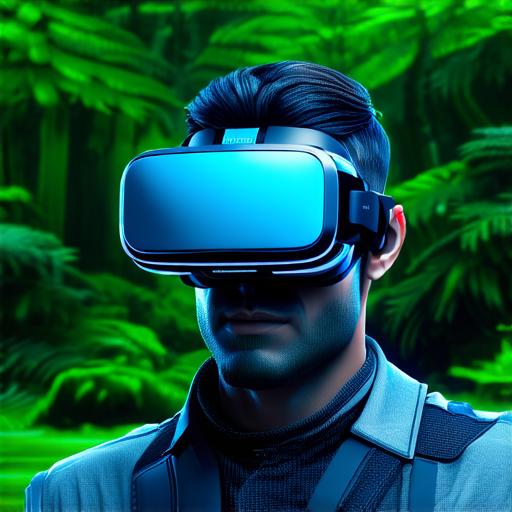
When will virtual reality become accessible?
Virtual reality (VR) is rapidly changing the way we interact with technology and the world around us. From gaming to healthcare, VR has already shown its potential in numerous industries.
The Current State of Virtual Reality Accessibility
Virtual reality is currently accessible to a limited number of people, mainly due to its high cost and specialized requirements. High-end computers, powerful graphics cards, and high-resolution displays are necessary for VR experiences to be enjoyable. In addition, many VR devices require expensive headsets and controllers that can be difficult for some users to afford.
Despite these barriers, progress is being made in VR accessibility. For example, mobile VR devices such as the Oculus Quest are becoming more affordable and accessible to a wider range of users. These devices use smartphones as the processing power, making them more portable and easier to set up.
Virtual Reality in Healthcare
One industry where virtual reality is already making a difference is healthcare. VR has been used in surgery, rehabilitation, and mental health treatments. For example, the use of VR in surgery allows doctors to practice procedures in a safe and controlled environment before performing them on patients. This can reduce the risk of complications and improve patient outcomes.
Virtual Reality in Education

Another industry where virtual reality is making a difference is education. With VR, students can take virtual field trips, explore historical sites, and even practice science experiments without leaving their classrooms. This can make learning more engaging and interactive, which can improve student outcomes.
Virtual Reality in Gaming
Virtual reality has also revolutionized the gaming industry. From first-person shooters to puzzle games, VR offers a completely new way to experience games that can be more immersive and engaging than traditional gaming methods.
The Future of Virtual Reality Accessibility
While virtual reality is already making progress in accessibility, there is still work to be done. As technology continues to advance, we can expect VR devices to become more affordable and accessible to a wider range of users. This may include the development of wireless VR headsets, which would eliminate the need for expensive cables and power sources.
In addition, as the VR ecosystem grows, we can expect more developers to create content that is accessible to a wider range of users. This may include games, educational experiences, and healthcare treatments that are optimized for mobile devices and lower-end hardware.
Expert Opinions
According to Dr. Michael Merzenich, a neuroscientist who specializes in brain plasticity, virtual reality has the potential to revolutionize the way we learn and interact with the world. “Virtual reality is an incredibly powerful tool for learning and experiencing new things,” he says. “As technology continues to advance, I believe we will see VR become more accessible and integrated into our daily lives.”
Conclusion
Virtual reality is already making a difference in several industries, but there is still work to be done to make it more accessible to everyone. With advances in technology and the growing VR ecosystem, we can expect virtual reality to become more affordable and accessible in the future. Whether you’re interested in gaming, healthcare, or education, virtual reality has the potential to transform the way we experience the world.
FAQs
1. What kind of computer do I need for VR?
Virtual reality experiences typically require a high-end computer with a powerful graphics card and a high-resolution display.
2. Do I need a special device to use VR?
Yes, most virtual reality experiences require a specialized device such as a headset and controllers.
3. Is virtual reality expensive?
Virtual reality devices can be expensive, but there are also more affordable options available, such as mobile VR devices.
4. Can virtual reality be used in healthcare?
Yes, virtual reality has already been used in healthcare for procedures like surgery and mental health treatments.
5. Can virtual reality be used in education?
Yes, virtual reality can be used in education to create more engaging and interactive learning experiences.
6. Can virtual reality be used in gaming?
Yes, virtual reality has revolutionized the gaming industry by offering a more immersive experience.


